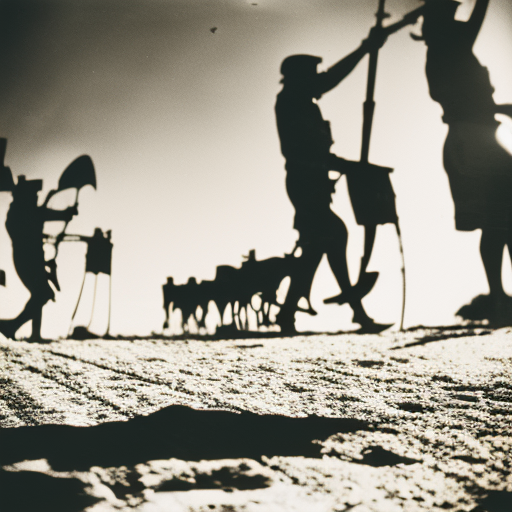The Trojan War: A Legendary Conflict
The Trojan War was a legendary conflict that took place in ancient Greece. It is believed to have occurred around the 12th or 13th century BCE and was immortalized in the epic poems of Homer, the Iliad and the Odyssey. The war was fought between the Greeks, led by King Agamemnon of Mycenae, and the Trojans, led by King Priam of Troy.
The Origins of the Trojan War
The origins of the Trojan War can be traced back to a dispute between three goddesses: Athena, Aphrodite, and Hera. They asked the Trojan prince Paris to judge which of them was the most beautiful. Paris chose Aphrodite, who promised him the love of the most beautiful woman in the world, Helen of Sparta. The problem was that Helen was already married to Menelaus, the king of Sparta.
The Abduction of Helen
Paris traveled to Sparta and seduced Helen, taking her back to Troy. This act of abduction outraged Menelaus and his brother Agamemnon, who gathered a coalition of Greek kings and warriors to retrieve Helen and avenge the insult to their honor.
The Greek Expedition to Troy
The Greek expedition to Troy, known as the Trojan War, lasted for ten years. The Greeks assembled a fleet of over a thousand ships and set sail for Troy. Among the most famous Greek heroes who participated in the war were Achilles, Odysseus, Ajax, and Diomedes.
The Siege of Troy
The Greeks arrived at Troy and laid siege to the city, but they were unable to breach its walls. The war was characterized by a series of battles and skirmishes, with neither side gaining a decisive advantage. The Trojans were led by Hector, the greatest warrior of Troy, while the Greeks were aided by the gods, particularly Achilles, who was invulnerable except for his heel.
The Trojan Horse
After ten years of fighting, the Greeks devised a plan to finally conquer Troy. They built a giant wooden horse and hid a select group of warriors inside it. The rest of the Greek army pretended to sail away, leaving the horse as a supposed offering to the gods. The Trojans, believing they had won the war, brought the horse inside the city walls.
The Fall of Troy
That night, the Greek warriors hidden inside the horse emerged and opened the city gates, allowing the rest of the Greek army to enter Troy. The city was sacked and burned, and most of its inhabitants were killed or enslaved. King Priam was killed, and Helen was returned to Menelaus.
The Aftermath of the Trojan War
The Trojan War had far-reaching consequences. It marked the end of the heroic age in Greek mythology and the transition to a more historical period. The war also had a profound impact on the Greek city-states, as many of the warriors who fought in Troy returned home to find their kingdoms in disarray. The story of the Trojan War became a central theme in Greek literature and art, inspiring countless works of poetry, drama, and sculpture.
In conclusion, the Trojan War was a legendary conflict that took place in ancient Greece. It was fought between the Greeks, led by King Agamemnon, and the Trojans, led by King Priam. The war was sparked by the abduction of Helen of Sparta by the Trojan prince Paris. After ten years of fighting, the Greeks finally conquered Troy by using the Trojan Horse. The war had significant consequences for Greek society and culture, and its story has been immortalized in the works of Homer and other ancient writers.












